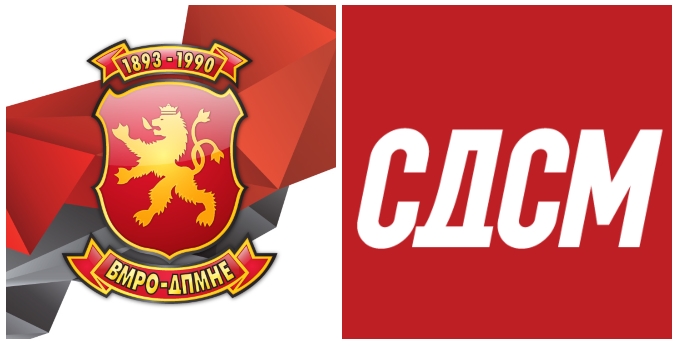If extraordinary parliamentary elections were to be held in November, 45% of the party-determined citizens registered on the voter’s list would cast their votes, shows the latest IPSOS field poll, conducted from 2 to 21 September on 1,021 respondents, commissioned by the opposition VMRO-DPMNE.
The results of the poll show that VMRO-DPMNE currently has the highest rating with 19%, which is even 10% more than the ruling SDSM, for which only 9% voted. Next comes DUI with 6%, Levica 5%, Alliance for Albanians 2%, and Besa, DPA and Alternative with 1 percent each.
Translated into numbers, out of the determined 815,000 voters, 335,000 would vote for VMRO-DPMNE, 155,000 for SDSM, 115,000 for DUI, 80,000 for Levica, 35,000 for Alliance for Albanians and somewhere around 16-17,000 citizens for Besa.
VMRO-DPMNE leader, Hristijan Mickoski, has the highest rating among politicians. Asked to rate the work of politicians on a scale from 1 to 10, the majority of respondents gave Mickoski a high rating. His work was rated 7, while Prime Minister Dimitar Kovacevski, the leader of DUI, Ali Ahmeti, and the Levica party, Dimitar Apasiev, were rated 3. According to the declaration of the citizens, in second place is President Stevo Pendarovski with a score of 4. Former Prime Minister Zoran Zaev, on the other hand, got a score of 1.
74% of Macedonians see Hristijan Mickoski as prime minister, while 26% chose Dimitar Kovacevski. Among the Albanians, on the other hand, the picture is reversed, as many as 80% give preference to Kovacevski, against 20% for Mickovski. Among other ethnic communities, Mickoski has an advantage, 62% see him as prime minister, against 38%, who declared for Kovacevski.
When asked “Do you support the French proposal”, 61.8% of respondents answered “no” and 25.1% answered “yes”. Among the Macedonians, “no” dominates with as many as 75%, and only 13% said “yes”.
Among the Albanians, the picture is reversed. 53% supported the French proposal, and 32% spoke against it. Among all other ethnic communities, 54 percent answered “no”, and 29 percent answered “yes”.
When asked “Is Macedonia moving in the right direction”, a high 66.3% assessed that it is moving in the wrong direction, and 19.8% answered with “yes”. It is interesting that more than half of the respondents, 54%, who voted for SDSM in the last parliamentary elections, now assess that Macedonia is moving in the wrong direction, and 36% in the right direction. As many as 59% of the voters of DUI assessed that Macedonia is moving in the right direction, and 36% said it is moving in the wrong direction.
The economic situation is a concern for 22% of respondents, for 19% the poor standard, low wages and inflation, for 8% unemployment, for 6% the energy crisis, and for 5% it was crime and corruption.




Comments are closed for this post.